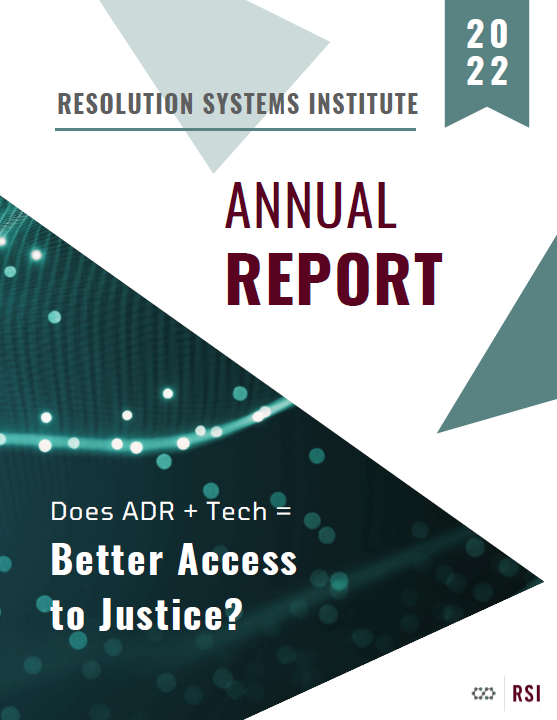RSI spends a lot of time and energy studying the conditions under which court-based alternative dispute resolution (ADR) can best improve access to justice. In recent years, that has often meant using new technologies and/or assessing their impact.
As is often the case with innovations, ADR options that employ new technology are sometimes hailed as the solution to longstanding challenges. For example, online dispute resolution (ODR) is celebrated for its potential to increase access to justice by allowing parties to engage on their own schedules, in their own spaces. Unfortunately, however, technological innovations can also bring challenges and create their own barriers to justice.
RSI’s 2022 annual report asks the question: Does ADR + Tech = Better Access to Justice? Our staff spent much of last year examining that premise. We published two landmark evaluations of court programs that used ODR-specific platforms; completed an in-depth report on the potential for ODR to serve thinly resourced parents, courts and communities; and used video mediation to serve hundreds of clients in northern Illinois. We also evaluated how those programs were operating and how participants viewed them.
Our annual report outlines these efforts and summarizes some of our findings. Not surprisingly, we found both promising signs and causes for concern when it came to technology’s impact on access to justice. We also discovered a lot more questions that need to be answered and problems that need to be addressed.
We hope you will take the time to read the Resolution Systems Institute 2022 Annual Report and review what we have learned so far. The role of technology is, of course, just one of many aspects of court-based ADR that RSI is examining. Please join us as we continue exploring what technology can and can’t solve, as well as other keys to providing cost-effective, timely and fair conflict resolution.


